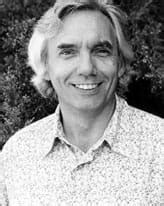A Quote by Lewis B. Smedes
When forgiveness is necessary, don't wait too long. We must begin to forgive, because without forgiving, we choke off our own joy; we kill our own soul. People carrying hate and resentment can invest themselves so deeply in that resentment that they gradually define themselves in terms of it.
Related Quotes
Forgiveness is the key to breaking the cycle of karma and reincarnation. Forgiveness doesn't mean: "What you did was okay." It simply means, "I'm no longer willing to carry the heavy toxic burdens of anger, resentment, and victimhood in my soul." You can work on healing, uplifting, and changing situations from a place of forgiveness, instead of from a place of resentment. Forgive yourself and everyone, and you are free!
We can not communicate with the Lord if we do not communicate with each other. If we want to present ourselves to him, we must take a step towards meeting one another. To do this we must learn the great lesson of forgiveness: we must not let the gnawings of resentment work in our soul but must open our hearts to the magnanimity of listening to others, open our hearts to understanding them, eventually to accepting their apologies, to generously offering our own.
Considering the importance of resentment in our lives, and the damage it does, it receives scant attention from psychiatrists and psychologists. Resentment is a great rationalizer: it presents us with selected versions of our own past, so that we do not recognize our own mistakes and avoid the necessity to make painful choices.
We forgive, if we are wise, not for the other person, but for ourselves. We forgive, not to erase a wrong, but to relieve the residue of the wrong that is alive within us. We forgive because it is less painful than holding on to resentment. We forgive because without it we condemn ourselves to repeating endlessly the very trauma or situation that hurt us so. We forgive because ultimately it is the smartest action to take on our own behalf. We forgive because it restores to us a sense of inner balance.
I worry about fast forgivers. They tend to forgive quickly in order to avoid their pain. Or they forgive fast in order to get an advantage over the people they forgive. And their instant forgiving only makes things worse... People who have been wronged badly and wounded deeply should give themselves time and space before they forgive... There is a right moment to forgive. We cannot predict it in advance; we can only get ourselves ready for it when it arrives... Don't do it quickly, but don't wait too long.
Not forgiving prolongs hurt and anger and leads to smoldering resentment, which will make us miserable until it kills us. Resentment destroys the perception of reality. As we try to bend the world to accommodate our resentment, fear, and selfishness, we become less accurate in understanding the world. This eventually destroys our ability to cope successfully with life.
Remembrance of Jesus' passion will heal your soul of resentment, by making it ashamed of itself when it remembers the patience of the Lord. Some people have wearied themselves and suffered for a long time in order to extract forgiveness. By far the best course, however, is to forget the offences, since the Lord says: "Forgive at once and you will be forgiven in generous measure." (cf. Luke 6:37-38)
We forgive, we mortify our resentment; a week later some chain of thought carries us back to the original offence and we discover the old resentment blazing away as if nothing had been done about it at all. We need to forgive our brother seventy times seven not only for 490 offences but for one offence.
...here also forgiving does not mean excusing. Many people seem to think it does. They think that if you ask them to forgive someone who has cheated or bullied them you are trying to make out that there was really no cheating or bullying. But if that were so, there would be nothing to forgive. (This doesn't mean that you must necessarily believe his next promise. It does mean that you must make every effort to kill every taste of resentment in your own heart - every wish to humiliate or hurt him or to pay him out.)
As we forge deeper into this issue of forgiveness, we must be prepared to open up and discuss things that bother us before they escalate to a crisis level. We must examine our struggles with forgiveness in which there are not overt offenses or blatant betrayals. I'm convinced that seeds of resentment take root in the silent frustrations that never get discussed. Other people cannot read our minds--or our palms!--and that is why we have tongues to speak.

































